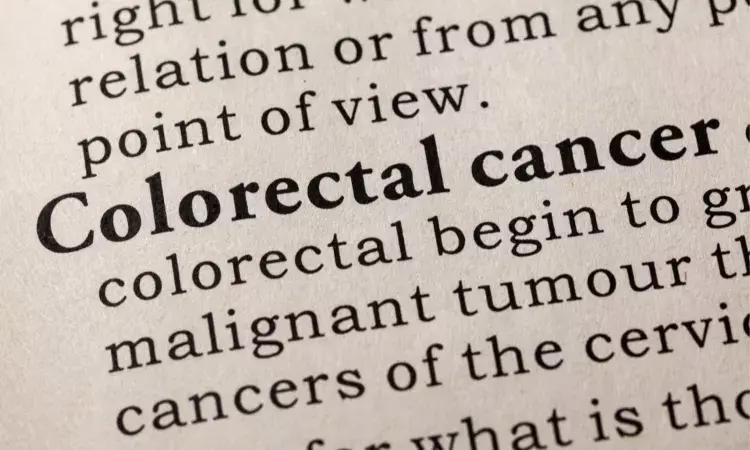- Home
- Medical news & Guidelines
- Anesthesiology
- Cardiology and CTVS
- Critical Care
- Dentistry
- Dermatology
- Diabetes and Endocrinology
- ENT
- Gastroenterology
- Medicine
- Nephrology
- Neurology
- Obstretics-Gynaecology
- Oncology
- Ophthalmology
- Orthopaedics
- Pediatrics-Neonatology
- Psychiatry
- Pulmonology
- Radiology
- Surgery
- Urology
- Laboratory Medicine
- Diet
- Nursing
- Paramedical
- Physiotherapy
- Health news
- Fact Check
- Bone Health Fact Check
- Brain Health Fact Check
- Cancer Related Fact Check
- Child Care Fact Check
- Dental and oral health fact check
- Diabetes and metabolic health fact check
- Diet and Nutrition Fact Check
- Eye and ENT Care Fact Check
- Fitness fact check
- Gut health fact check
- Heart health fact check
- Kidney health fact check
- Medical education fact check
- Men's health fact check
- Respiratory fact check
- Skin and hair care fact check
- Vaccine and Immunization fact check
- Women's health fact check
- AYUSH
- State News
- Andaman and Nicobar Islands
- Andhra Pradesh
- Arunachal Pradesh
- Assam
- Bihar
- Chandigarh
- Chattisgarh
- Dadra and Nagar Haveli
- Daman and Diu
- Delhi
- Goa
- Gujarat
- Haryana
- Himachal Pradesh
- Jammu & Kashmir
- Jharkhand
- Karnataka
- Kerala
- Ladakh
- Lakshadweep
- Madhya Pradesh
- Maharashtra
- Manipur
- Meghalaya
- Mizoram
- Nagaland
- Odisha
- Puducherry
- Punjab
- Rajasthan
- Sikkim
- Tamil Nadu
- Telangana
- Tripura
- Uttar Pradesh
- Uttrakhand
- West Bengal
- Medical Education
- Industry
PD-1 inhibitors Highly Effective for Colorectal Cancer in Lynch Syndrome Patients

Research article published in the European Journal of Cancer has concluded that Programmed death-1 inhibitors are highly effective for colorectal cancer in patients with a history of Lynch syndrome. Further the researchers found that PD-1 inhibitors were highly effective for deficient mismatch repair (dMMR) or high microsatellite instability (MSI-H) LS CRCs. The 3-year OS and PFS reported with PD-1 inhibitors was 91.2% & 82.2%, respectively. Anti-PD-1 treatment was effective in patients with large LS adenomas (≥7mm).
This study, “Efficacy of PD-1 Inhibitors for Colorectal Cancer (CRC) and Polyps in Lynch Syndrome (LS) Patients”, was led by Yu et al. and colleagues.
It is already known that PD-1 inhibitors are effective for CRC with deficient mismatch repair (dMMR) or high microsatellite instability (MSI-H). The main aim of the present study was to explore its effects on CRCs and colonic polyps in LS patients. In this study, researchers included LS patients with CRC who received at least two cycles of PD-1 inhibitors.
PD-1 inhibitors were given as a monotherapy or combined with other therapies like anti-cytotoxic T lymphocyte-associated antigen-4 (CTLA-4) treatment, radiotherapy, chemotherapy, and targeted therapy.
The key results of the study are:
- There were a total of 75 patients with a history of LS. The median age of these patients was 39 years.
- The patients were followed up for 27 months.
- The objective response rate (ORR) was 70.7%.
- The percentage of complete and partial responses was 28.0% and 42.7%.
- Four of five cases had proficient MMR (pMMR) or microsatellite stable (MSS) that were not responsive.
- Mucinous/signet-ring cell differentiation was associated with a lower ORR.
- The 3-year overall survival and progression-free survival were 91.2% and 82.2%, respectively.
- During surveillance, 26 patients had Polyps.
- Seven adenomas which were larger than 7mm disappeared after treatment.
In this study, researchers highlighted the effectiveness of PD-1 inhibitors for LS dMMR/MSI-H CRC. They believe MSI and MMR status is crucial to tumour response to PD-1 inhibitors. They also mentioned less sensitivity of Mucinous and signet-ring cell LS CRC to PD-1 inhibitors.
Large adenomas of size ≥7mm in LS patients may respond to PD-1 inhibitors.
For further reference log on to:
https://www.ejcancer.com/article/S0959-8049(23)00355-6/fulltext
BDS, MDS in Periodontics and Implantology
Dr. Aditi Yadav is a BDS, MDS in Periodontics and Implantology. She has a clinical experience of 5 years as a laser dental surgeon. She also has a Diploma in clinical research and pharmacovigilance and is a Certified data scientist. She is currently working as a content developer in e-health services. Dr. Yadav has a keen interest in Medical Journalism and is actively involved in Medical Research writing.
Dr Kamal Kant Kohli-MBBS, DTCD- a chest specialist with more than 30 years of practice and a flair for writing clinical articles, Dr Kamal Kant Kohli joined Medical Dialogues as a Chief Editor of Medical News. Besides writing articles, as an editor, he proofreads and verifies all the medical content published on Medical Dialogues including those coming from journals, studies,medical conferences,guidelines etc. Email: drkohli@medicaldialogues.in. Contact no. 011-43720751


